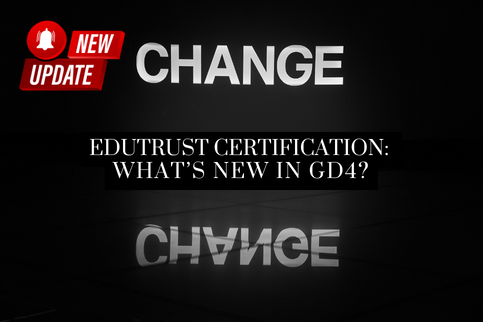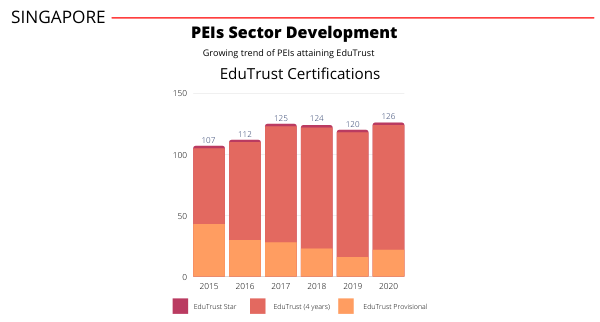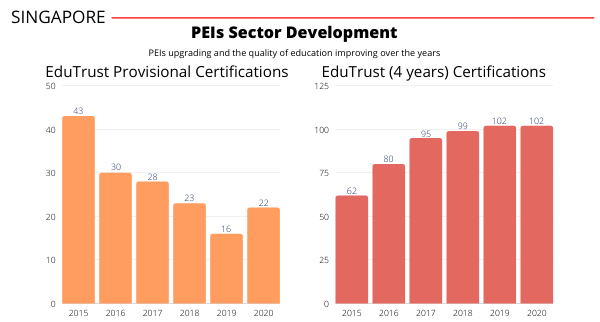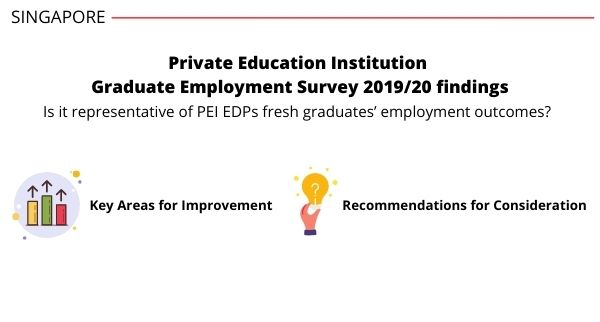Private Schools in Singapore are governed by the Committee for Private Education (CPE) through two regulatory frameworks which are the mandatory ERF and voluntary EduTrust certification. Over the years, these regulations ensure that Private Schools in Singapore maintains a certain standard in areas such as academic, student administration and quality assurance. All to protect students’ interests.
In April 2023, the EduTrust Certification Scheme was updated to Guidance Document 4 (GD4) to ensure that its policies and regulations remains relevant and improves the overall standard of Private Schools in Singapore. Here are some key changes made to EduTrust GD4:
Regrouping Criterion Requirements
In GD4, the criterions are shifted and regrouped to better match key department roles in the private schools. For example, Partnerships that was part of Criterion 2: Corporate Governance and Administration is now under Criterion 5: Academic as partners are mainly academic in nature. This will ensure better flow and ownership for the private schools.
Stricter EduTrust Assessment Process and Expectation
The outcome of the assessment which used to be based solely on total point accumulation by the Private Schools has been changed to needing to meet a minimum score of Band 3 (out of 5) in 3 critical areas determined by CPE (listed below) to attain the EduTrust award:
(a) Sub-criterion 4.2: Student Contract, Fee Collection and Fee Protection Scheme
(b) Sub-criterion 4.6: Student Conduct and Attendance
(c) Criterion 5: Academic Systems and Processes
Introduction of Performance Outcomes
One key aspect of the EduTrust has always been the need for constant analysis of data for continual improvement. Trend, benchmarking and survey analysis have long been the norm in private schools, and the indicators used may vary from one private school to another. Some may choose to take a quantitative approach, while others may choose to take a more qualitative approach.
With the introduction of performance outcomes, it provides a more standard approach towards measuring how well the school is performing. All schools must now minimally collate and analyse this set of indicators, which relies on a quantitative approach.
So, what can Private Schools expect for their next Site Assessment?
It is anticipated that CPE will be more critical in assessing the 3 key areas identified and focus on the new criterion on performance outcomes. Private Schools must make sure that they have done their due diligence to implement or update their policies and procedures to comply with the changes in GD4, taking note that failure to do so may result in losing their current certification.
Change can be scary, but it is necessary to stay relevant. To help ensure your Private School is ready, Eduvalue has a team of experienced EduTrust consultants who can assess and guide you through implementing the new policies and procedure to ensure compliance to the new regulations.
Find out more about EduValue’s EduTrust related services at https://eduvalue.com.sg/peis-consulting





